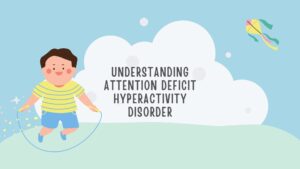OUTLINE
- MY ‘heart’ or ‘HEART’
- SO WHAT EXACTLY DOES THE HEART DO?
- HEARTBREAK?
- PROTECT YOUR HEART
- CONCLUSION
- REFERENCES
MY ‘heart’ or ‘HEART’?
When some people hear ‘my heart’ they probably think of feelings first, love, happiness, sadness. Terms like ‘heartbreak’ also push this thought pattern. Well, it’s a good thing if it remains figurative!
The ‘HEART’ in reality is an organ that pumps blood to the lungs and other parts of the body. It has four chambers, the right and left ventricles, the right and left auricles. It also has 2 valves- the mitral valve on the left and the tricuspid valve on the left. Just think of it as a pump with stops(valves) that regulate the inflow and outflow of blood! An average adult human heart beats at 70 beats per minute! Amazed? Yes!! And imagine it does this throughout life! What an awesome organ we have here and mind you it never takes a break too.
It is also important to note that the heart has its own blood supply via the coronary Artery
SO, WHAT EXACTLY DOES THE HEART DO?
The heart has so many functions, chief of which is to pump blood round the body. It does this by contracting and relaxing rhythmically. Remember our ‘pump theory’. When the heart contracts, it is known as a systole and when it relaxes, it is known as diastole. The right ventricle pumps deoxygenated blood to the lungs for oxygenation (pulmonary circulation) while the left ventricles pumps blood to other parts of the body(systemic circulation).
Other functions include compensation in shock, hormonal functions and is also involved in the fight or flight response in the nervous system.
HEARTBREAK??
Actually, No. When the heart is damaged, it is called a Heart disease or Cardiovascular disease more specifically especially when it involves the blood too.
As with any cell of the body, the cells of the heart (myocytes) can be injured when there is so much stress that it can no longer cope. Stress can be in form of too much blood volume to pump, meaning the heart has to work more. It can also be because the blood supply to the heart is compromised, meaning that the myocytes no longer have enough nutrients to function properly. Another is when the valves (stops) lose their integrity and so, the heart can no longer control blood flow as it should.
A few heart diseases are briefly described below:
- Heart Failure:
- Congestive Heart Failure (CHF): This is commonly known as Heart Failure and it occurs when the Heart is not able to meet the demands of the tissues in the body. It usually happens when either the cardiac workload is increased or the cardiac function is compromised (that is, the heart itself is faulty).
- Left-sided Heart Failure: This is a condition that results from blocking of the pulmonary circulation and sluggish movement of blood in the left heart chambers (ventricle and atrium). It is usually caused by hypertension and valvular diseases.
- Right-sided Heart Failure: is usually due to Left-sided heart failure
- Congenital Heart Diseases(CHD): CHD is a general term designated for abnormalities of the heart that are present at birth. Major ones include:
- Left-to-Right shunts: Usually associated with Ventricular Septal Defects, Atrial Septal Defects, and Patent Ductus Arteriosus. (all these, In lay man language would mean ‘a hole in the heart’)
- Right-to-Left shunts:
- Obstructive lesions, including aortic coarctation
- Ischemic Heart Disease: Cardiac Ischemia results from a mismatch in the coronary supply and myocardial demand.
- Arrhythmias: Loss of rhythmicity of the heart. This means that instead of a regular ‘lub-dub’ that you hear when you place your heart close to your friend’s chest, the pattern gets distorted! That doesn’t sound very good.
- Hypertensive Heart disease
Pheew! There are hundreds of diseases that affect the heart and some have not even been discovered. I have just enumerated the more common ones in our environment.
PROTECT YOUR HEART
Seeing how vital it is to human survival, I believe great care should be given to the heart. Don’t you think so? For an organ that works that much, it is only fair that you do whatever it takes to protect it in the following ways:
- Lifestyle: This is the most important factor influencing what becomes of your heart. It includes:
- Diet: watch what you eat. Too much fatty foods, with bad cholesterol does much harm to the heart, especially as you grow older
- Habits (smoking should be avoided and alcohol in moderate amounts)
- Rest should be adequate.
- Pregnant women should be careful with what they eat as well as their habits, as this could harm the fetus
- Routine and comprehensive check up
- Exercise regularly
CONCLUSION
If we go to great extents to protect our ‘hearts’ from hurt and pain and sadness, I believe we should do even more to protect our HEARTS from Disease and ailments, after all, If this HEART stops beating, then this ‘heart’ would no longer exist.
Thanks!
REFERENCES
Robbins and Cotran: Pathologic Basis of Disease(Ninth edition)
Wikipedia
Keith Moore: Clinically Oriented Anatomy(7th Edition)



No comment yet, add your voice below!